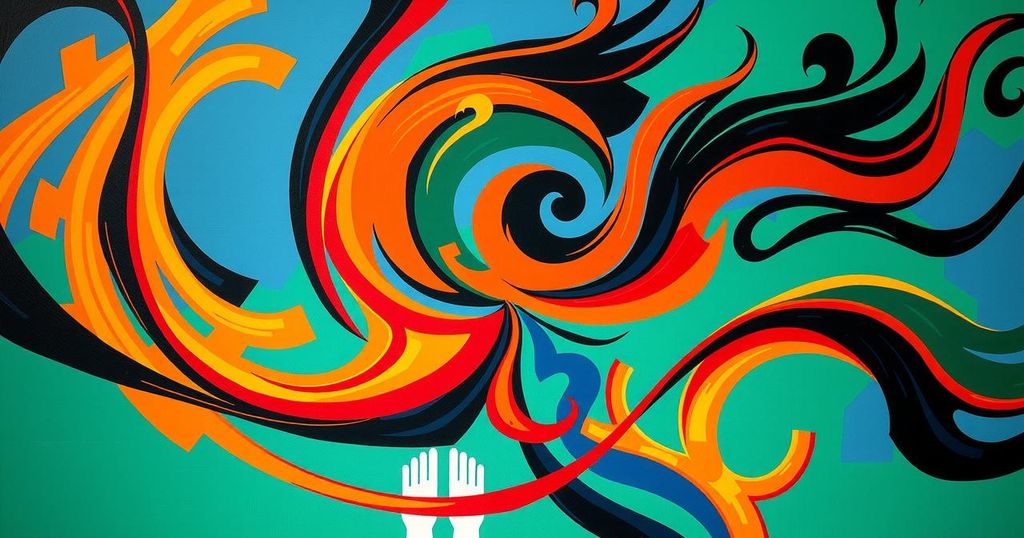World news
AFRICA, ALLIANCE DU CHANGEMENT, ALLIANCE LEPEP, BDP, BOTSWANA DEMOCRATIC PARTY, DEMOCRACY, ELECTIONS, GOVERNANCE, GOVERNMENT, MAURITIUS, MILITANT SOCIALIST MOVEMENT, NAMIBIA, NET, NETUMBO NANDI - NDAITWAH, OPPOSITION, PARLIAMENTARY SEATS, PR, PRAVIND JAGNAUTH, SAHARAN AFRICA, SWAPO
Jamal Robinson
0 Comments
Namibian Elections Reflect Wider Political Shifts in Sub-Saharan Africa
Namibia’s governing party, Swapo, faced significant losses in recent elections, winning the presidential election with 57% but losing 12 parliamentary seats. This trend reflects a wider challenge to incumbents across sub-Saharan Africa, marked by rising public discontent over economic and governance issues. Countries like Botswana and Mauritius also witnessed substantial opposition victories, indicating a shift in the political landscape and a potential continuation of this trend into upcoming elections.
The recent elections in Namibia have showcased a shift in political dynamics, as the ruling party, Swapo, held on to power after over 30 years, but experienced notable losses. Official results indicated that Netumbo Nandi-Ndaitwah, the Swapo candidate, secured the presidency with 57% of the vote, marking her as the first female leader of the nation. Opposition parties, however, have contested the outcome, citing logistical issues and irregularities in the electoral process.
Despite victory in the presidential race, Swapo suffered its worst parliamentary performance, losing 12 of its 63 seats, raising questions about the electoral process and voter sentiment. This follows a trend throughout sub-Saharan Africa this year, where incumbents faced significant challenges at the polls. Factors such as economic difficulties, rising public discontent with corruption, and strengthened opposition movements have fueled voter dissatisfaction and political change.
Notably, the year 2024 has been described as “annus horribilis” for many ruling parties in the region, experiencing unprecedented electoral losses. The Botswana Democratic Party, which had ruled since 1966, was decimated in the recent elections, securing only four parliamentary seats. Similarly, in Mauritius, the governing Alliance Lepep faced a staggering defeat, with the opposition winning an overwhelming majority of seats.
In Senegal, a dramatic political turnaround occurred with the release of opposition leaders preceding the election, allowing the opposition to triumph despite governmental attempts at repression. South Africa’s African National Congress retained power, but fell below 50% in the national vote for the first time since 1994, prompting a coalition government and revealing diminishing political control.
Voter discontent has been amplifying due to concerns over corruption, economic mismanagement, and failure to uphold democratic rights. This environment has enabled opposition parties to rally support through vigilant electoral oversight and strategic coalitions. As other nations like Ghana and Malawi approach elections, the potential for continued shifts in political power remains evident.
The trend of democratic resilience across Africa, despite global challenges, highlights a significant response from civil society and opposition parties aiming for accountability and political reform. This reflects a more vibrant multiparty political landscape in a region previously viewed as predominantly authoritarian, underscoring the importance of international engagement with Africa’s political developments.
In conclusion, Namibia’s elections reveal a broader phenomenon throughout sub-Saharan Africa where longstanding ruling parties are facing considerable electoral setbacks. The prevailing discontent stemming from economic struggles, rampant corruption, and ineffective governance has empowered opposition parties, leading to significant political changes. As regional dynamics evolve, there exists strong potential for continued democratic resilience and shifts in power. Observers of global politics would do well to recognize the changing landscape within Africa, suggesting a notable resilience against authoritarian tendencies.
Original Source: www.bbc.com




Post Comment